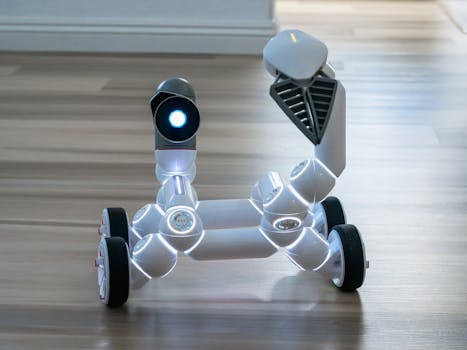
Smart Homes 2025: The Rise of AI-Driven Devices
Smart Homes 2025: The Rise of AI-Driven Devices is an exciting topic that has been gaining traction in recent years. As we move into the future, it’s clear that smart homes will play a significant role in shaping the way we live, work, and interact with our surroundings. At the heart of this revolution are AI-driven devices, which are transforming the concept of home automation and taking it to unprecedented heights.
Introduction to Smart Homes
A smart home is a residence that has been equipped with advanced technology to provide occupants with a more convenient, comfortable, and secure living environment. This is achieved through the integration of various devices and systems, such as thermostats, lighting, security cameras, and entertainment systems, which can be controlled remotely using a smartphone or voice assistant.
The concept of smart homes has been around for several decades, but it’s only in recent years that we’ve seen significant advancements in AI-driven devices. These devices have the ability to learn and adapt to our habits and preferences, allowing for a more personalized and efficient living experience.
The Rise of AI-Driven Devices
AI-driven devices are the backbone of smart homes, providing the intelligence and automation needed to create a seamless and intuitive living environment. These devices use machine learning algorithms to learn our habits and preferences, allowing them to make predictions and take actions accordingly.
For example, an AI-powered thermostat can learn our daily schedule and adjust the temperature accordingly. If we’re away from home, the thermostat can automatically lower the temperature to save energy. Similarly, AI-powered lighting systems can adjust the brightness and color of lights based on the time of day and our activities.
Other examples of AI-driven devices include security cameras with facial recognition, voice assistants that can control multiple devices, and smart speakers that can play music and provide news updates.
Benefits of Smart Homes
Smart homes offer a wide range of benefits, from convenience and comfort to energy efficiency and security. With AI-driven devices, we can enjoy a more personalized living experience, where our needs are anticipated and met without us having to lift a finger.
Some of the key benefits of smart homes include:
- Energy efficiency: Smart homes can help reduce energy consumption by optimizing heating, cooling, and lighting usage.
- Increased security: Smart homes can provide an additional layer of security, with features such as motion detection, facial recognition, and alerts in case of suspicious activity.
- Improved convenience: Smart homes can simplify our lives, with features such as voice control, automated routines, and remote access to devices.
- Enhanced comfort: Smart homes can provide a more comfortable living environment, with features such as temperature control, lighting adjustment, and air quality monitoring.
Conclusion
Smart Homes 2025: The Rise of AI-Driven Devices is a topic that highlights the exciting future of home automation. With AI-driven devices at the forefront, we can expect to see significant advancements in the way we live, work, and interact with our surroundings. As we move forward, it’s essential to consider the benefits and challenges of smart homes, and to ensure that these technologies are developed and implemented in a responsible and secure manner.






